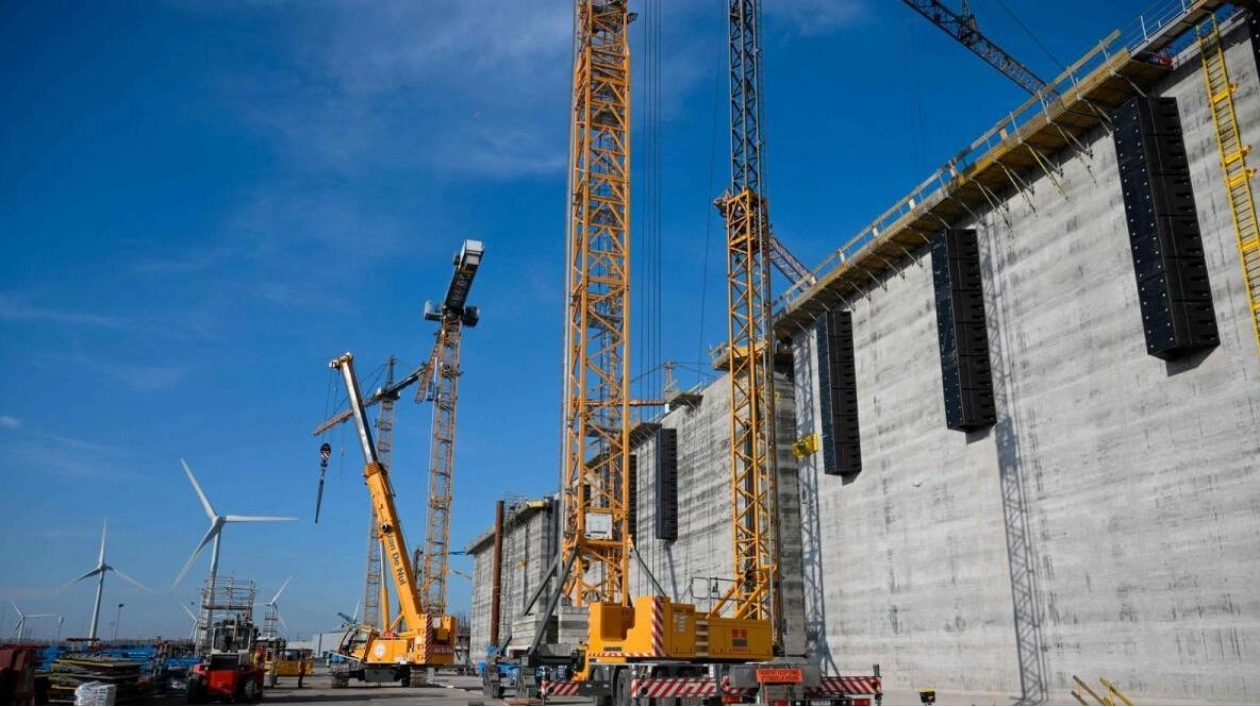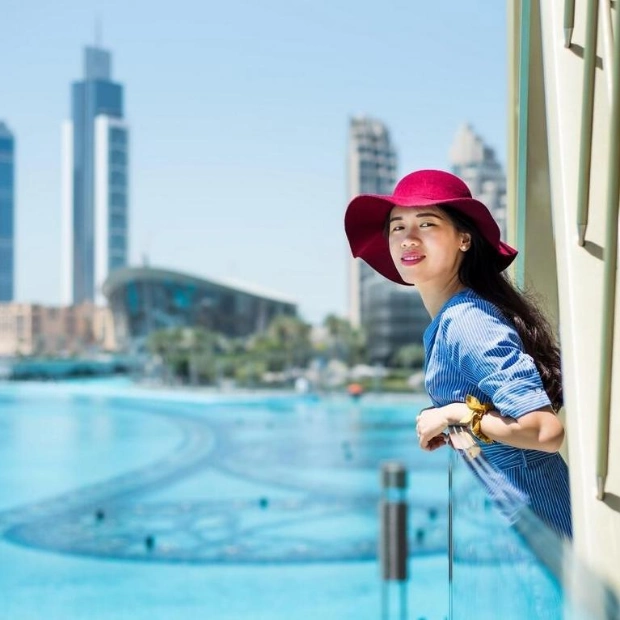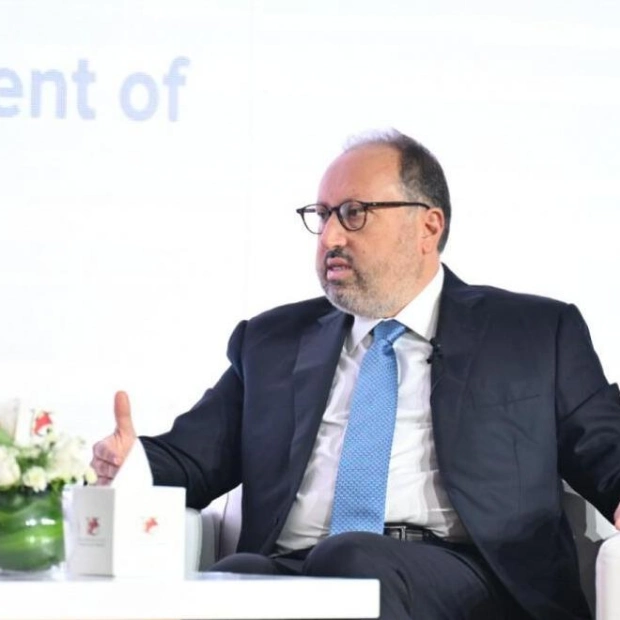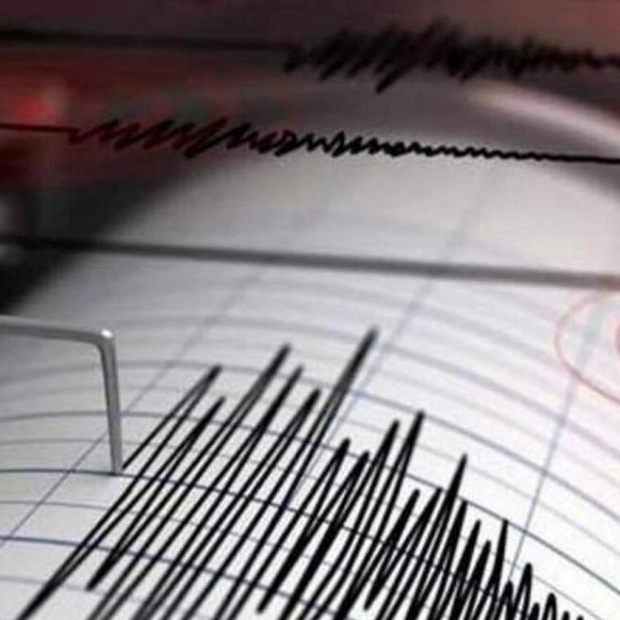The construction site of the future energy island Princess Elizabeth Island in Vlissingen, Netherlands, is bustling with activity. This innovative energy hub, situated approximately 40 km offshore the Belgian coast, is designed to facilitate the transport of substantial volumes of wind energy from the North Sea to the mainland. AFP
At a shipyard along the North Sea, workers clad in luminous vests are constructing dozens of colossal, hollow concrete structures, each comparable in size to an apartment block. These massive units will be transported to sea and submerged, forming the foundations of a pioneering Belgian green energy project—a first of its kind globally—which, however, faces financial turbulence due to escalating costs. Named in honor of Belgium's Princess Elisabeth, the 'energy island' initiative was launched in 2021 to bolster a significant expansion in wind energy production, thereby drastically curbing the nation's reliance on climate-damaging fossil fuels. However, supply chain disruptions have caused costs to surge, with some estimates placing the total at over seven billion euros ($7.56 billion), prompting calls for a halt in construction amid mounting political resistance to ambitious green targets across Europe. 'This cost escalation is a major concern,' stated Belgium's energy minister Tinne Van der Straeten.
According to the government, just over 10% of Belgium's energy supply is derived from renewable sources. The bulk of its energy needs are met by nuclear, gas, and oil, as per the International Energy Agency. However, Belgium must reduce its dependence on fossil fuels to meet the European Union's target of 42.5% renewable energy by 2030. 'That's why we need transformative projects, such as this one,' Van der Straeten emphasized, donning a yellow construction helmet during a visit to the Vlissingen shipyard, a Dutch port near the Belgian coast. Belgium plans to install 3.5 gigawatts of offshore wind capacity in the coming years—enough to meet 30% of the country's energy needs, according to the government. Belgian grid operator Elia believes that constructing an artificial island is the most efficient method to transport this energy to shore. Located 45 km off the coast, the island will house transformers and bundle together undersea cables to deliver electricity to land. It will also connect the Belgian grid with wind-energy-producing North Sea neighbors, such as Britain and Denmark, ensuring a more stable energy supply. The island is akin to 'an extension cord with multiple sockets,' explained Joannes Laveyne, a researcher at Ghent University. Advocates argue that situating the island at sea avoids 'not in my backyard' complaints from locals in densely populated areas and shortens international connections. Proximity to wind farms minimizes energy losses. The project has garnered the support of environmental groups, who are pleased with its green objectives and nature-friendly design. The island will feature ledges for seabirds to breed and an artificial reef to enhance marine life.
However, Russia's invasion of Ukraine in 2022 complicated matters. It spurred a European push to reduce reliance on Russian gas, accelerating the continent's rush to build more renewable energy facilities. The cost of related works and equipment has skyrocketed, according to Elia. 'In all countries, people want to buy the same equipment, but supply cannot meet demand,' noted Frederic Dunon, CEO of Elia Transmission Belgium. From an initial estimate of 2.2 billion euros ($2.4 billion), the island's cost has ballooned to over seven billion euros, according to a recent parliamentary estimate that Elia did not confirm. This is partly due to inadequate investment in the capacity of firms tasked with building the infrastructure, as highlighted by Laveyne. Since Elia can pass the cost onto consumers via their utility bills, some have called for a reevaluation of the project. A group representing industrial energy consumers has urged a temporary halt to the project. This controversy arises amid far-right gains in several countries, leading to growing calls for the EU to temper its climate ambitions. EU chief Ursula von der Leyen has vowed to balance 'climate protection with a prosperous economy' in her second term. Van der Straeten expressed hope that the EU would allocate more funds for projects like the energy island—which recently secured a 650-million-euro credit facility from the European Investment Bank. Meanwhile, a cost-benefit assessment is underway, and the government is seeking additional financing. However, environmentalists are concerned that a new government might have different priorities, potentially delaying the project and keeping the door open for dirtier energy sources. Halting wind-power plans due to associated costs is akin to 'throwing away the baby with the bathwater,' argued Almut Bonhage of environmental organization Bond Beter Leefmilieu.
Source link: https://www.khaleejtimes.com






